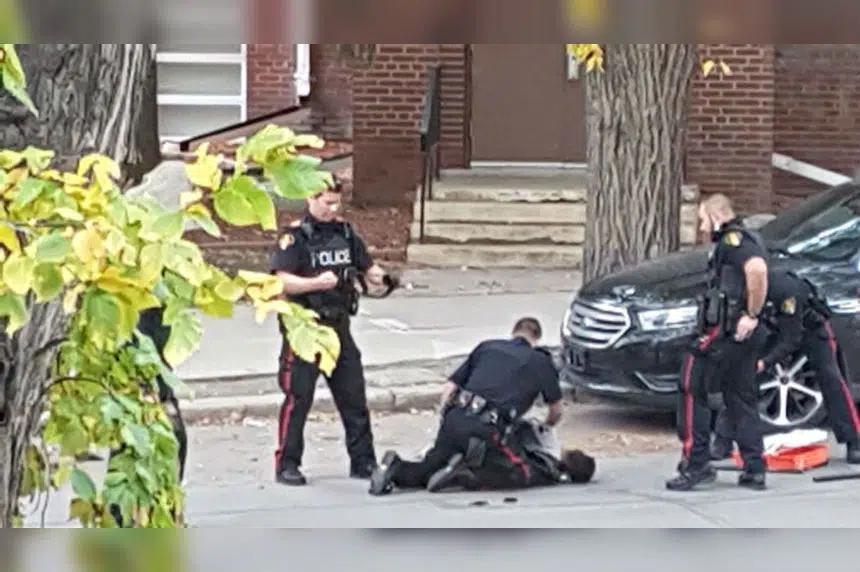Mike Arcand has been sentenced to eight years in prison for his actions in a shootout in downtown Saskatoon.
Arcand, 35, stood silently at Saskatoon Court of Queen’s Bench on Friday as Justice Jeff Kalmakoff handed down the sentence for firearms charges stemming from when Arcand fired a homemade zipgun in the direction of a police officer who was trying to arrest him in September 2017.
Arcand was found guilty of assault with a weapon but he was not found guilty of attempted murder when the verdict was given in February.
The Crown was asking for a sentence of nine to 10 years for the crimes. Prosecutor Todd Wellsch was pleased when he spoke with reporters outside the courtroom.
“The judge gave a very thorough, well-reasoned decision in coming to the eight (years),” Wellsch said. “There was numerous Gladue factors that he had to consider and I believe he probably made an appropriate decision in terms of the sentence.”
The court heard Arcand’s parents attended residential schools, noting that negatively affected the family and their ability to parent Arcand.
Arcand suffered a bullet wound and dog bites from his struggle with police after the shooting. Those wounds made him a target in prison. Since his arrest, he has become a gang member to fend for his survival.
Kalmakoff noted those factors, but also took into account that Arcand refused to drop his weapon, fired it and reloaded it before firing it a second time when the shootout began around 3 p.m. on Fourth Avenue South.
“The sentencing needs to be more harsh when police officers are involved as being the victim,” Wellsch said. “And it wasn’t just the police here that were put in danger. It was police as well as the citizens of Saskatoon, and that was fully recognized by the judge as well.”
Due to an enhanced remand credit of approximately two years, Arcand has six years remaining on his sentence.
Arcand was sentenced on the most serious of the charges he faced — firing with intent, an offence that carries a minimum sentence of four years.
The Kienapple principle prevents someone from being convicted of multiple or similar offences that emerge from the same facts.











